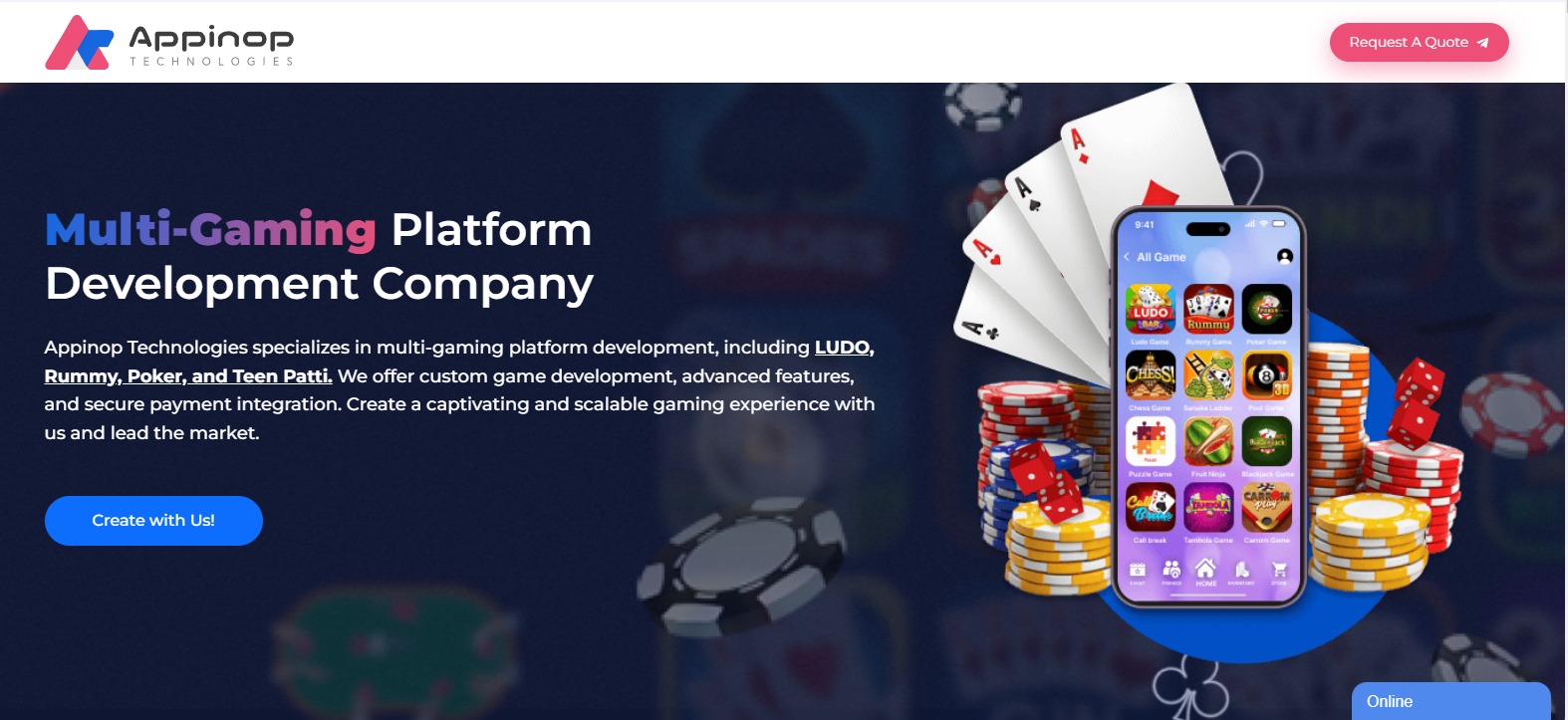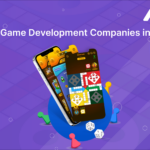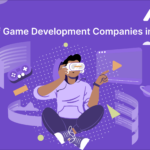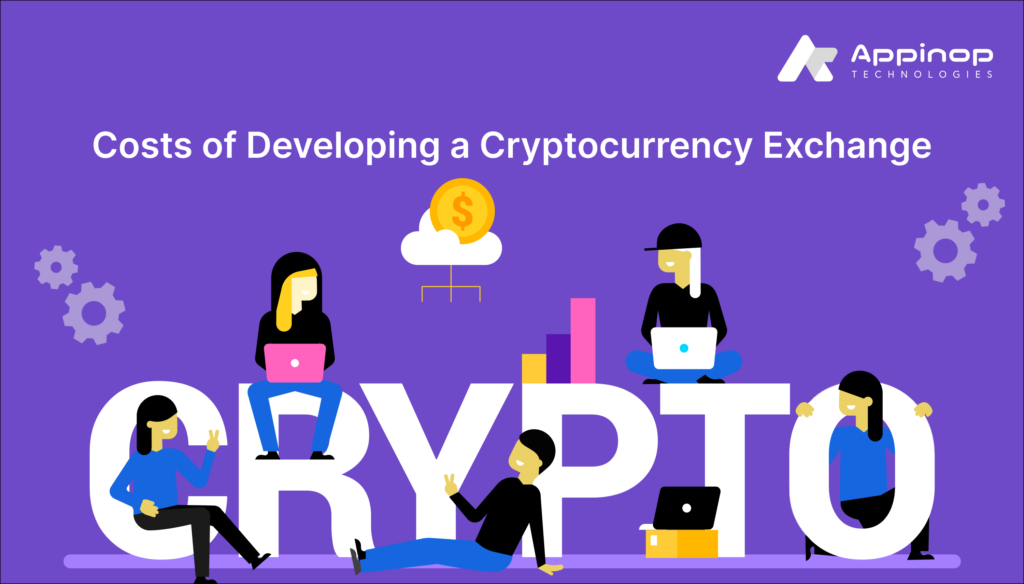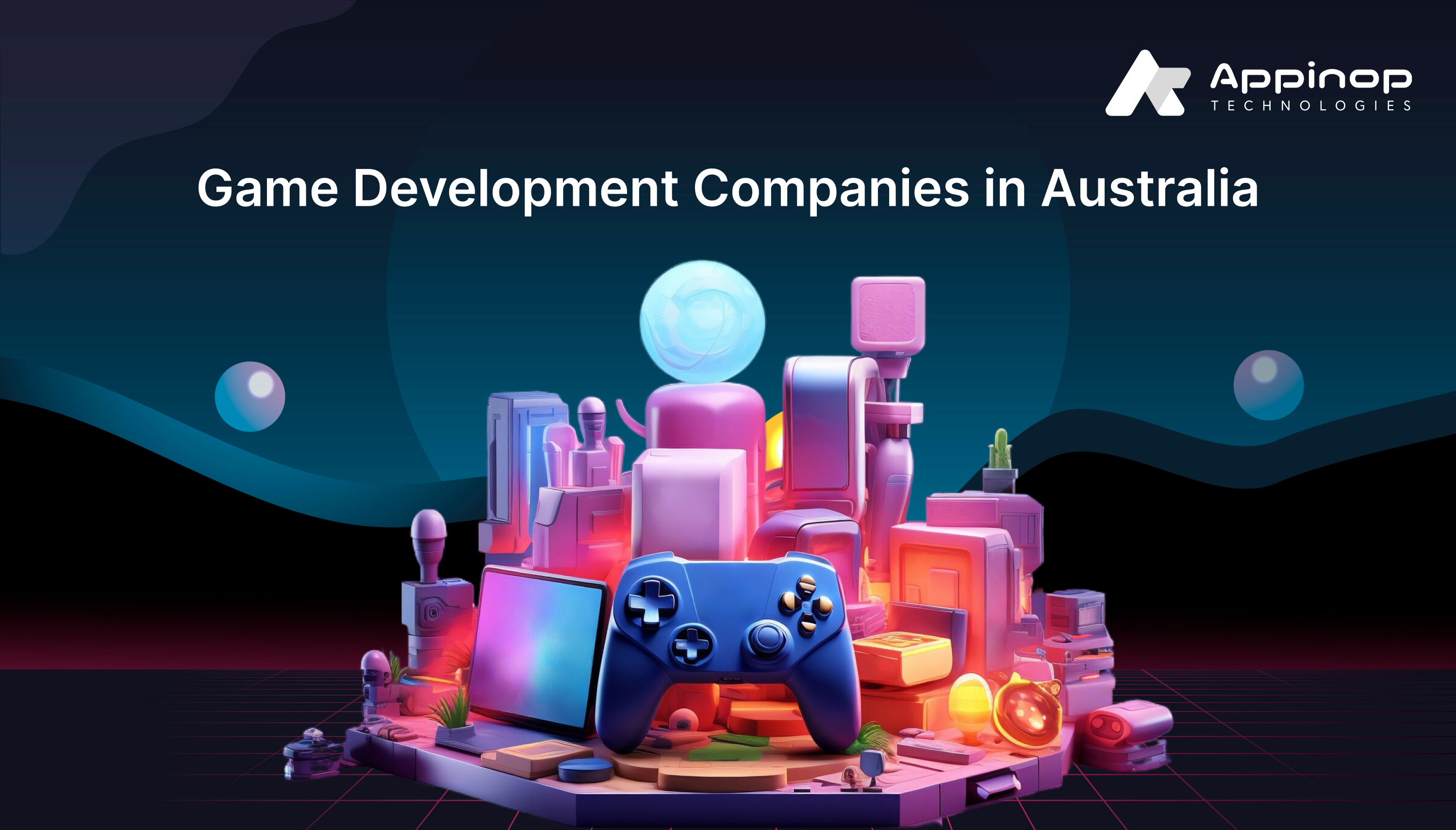
Best 10 Game Development Companies in Australia – 2024
The game development industry has seen remarkable growth over the past few decades, evolving into a multi-billion dollar sector worldwide. Australia, with its rich history of creativity and technological innovation, has become a significant player in this global market. Game development in Australia is not just about creating fun and engaging games; it also involves a complex ecosystem that includes design, programming, art, music, and testing, all working together to deliver a cohesive product.
In recent years, the Australian game development market has expanded rapidly. According to the Interactive Games and Entertainment Association (IGEA), the Australian video game industry generated over $3.6 billion in 2023. This growth is driven by a combination of factors, including the increasing popularity of mobile gaming, the rise of indie developers, and the strong support from both the government and private sectors. The Australian market is also known for its high-quality talent pool, making it a hub for game development in the Asia-Pacific region.
10 Game Development Companies in Australia

| Sr | Company Name | Types of Game | Founded Year |
| 1 | Appinop Technologies | Fantasy Games, Ludo, Rummy | 2014 |
| 2 | Halfbrick Studio | Mobile, Console, PC | 2001 |
| 3 | Big Ant Studios | Sports, Simulation | 2001 |
| 4 | Tantalus Media | Console, PC | 1994 |
| 5 | Wicked Witch Software | Mobile, PC, Console | 2001 |
| 6 | League of Geeks | Strategy, Indie | 2011 |
| 7 | Firemonkeys Studios | Mobile, PC | 1999 |
| 8 | Defiant Development | Indie, Mobile, PC | 2010 |
| 9 | Mighty Kingdom | Mobile, PC, Console | 2010 |
| 10 | SMG Studio | Mobile, PC, Console | 2013 |
1. Appinop Technologies:⤵️
Established in 2014, Appinop Technologies stands out as a leader in mobile game development, delivering exceptional gaming experiences across a variety of genres. Their expertise spans the development of popular games such as Ludo, Teen Patti, Carrom, fantasy games, and multi-gaming platforms. With a keen focus on innovation and quality, Appinop Technologies creates engaging and immersive games that captivate players and keep them coming back for more.
By leveraging the latest technologies and industry best practices, Appinop Technologies consistently delivers top-notch mobile games that meet and exceed user expectations.
2. Halfbrick Studios:⤵️
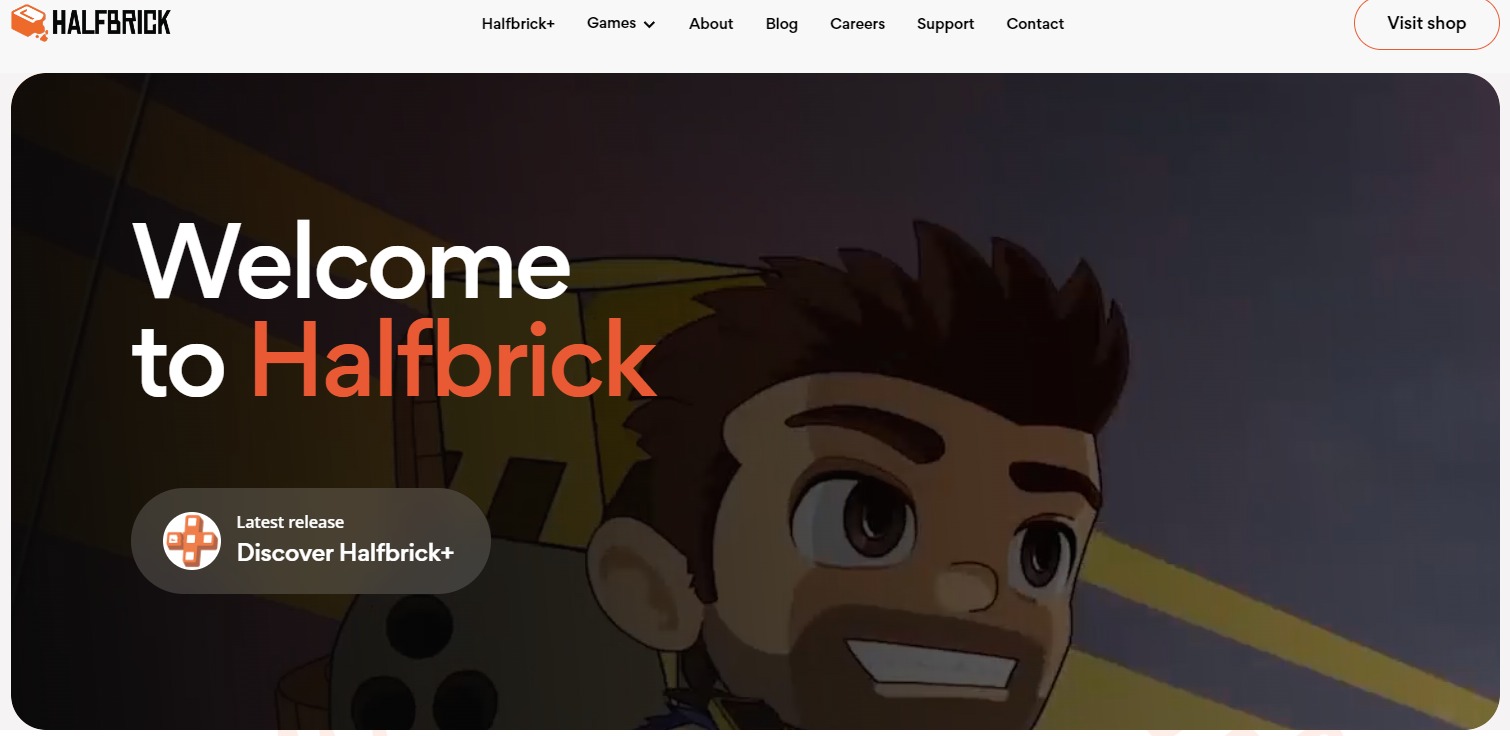
Founded in 2001, Halfbrick Studios is best known for their hit mobile game, “Fruit Ninja.” They have a diverse portfolio that includes games for mobile, console, and PC platforms, focusing on delivering fun and engaging experiences.
3. Big Ant Studios:⤵️
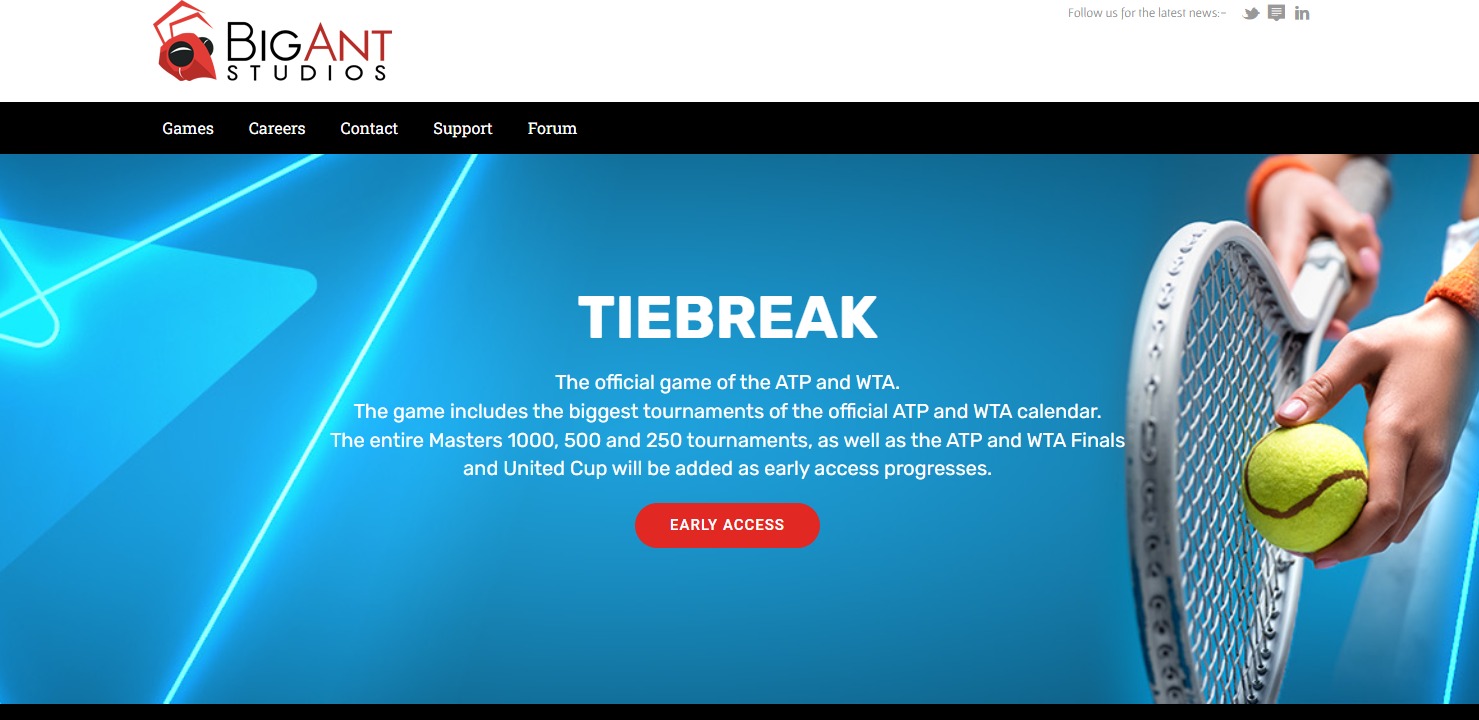
Established in 2001, Big Ant Studios is renowned for its sports and simulation games. Titles like “AO Tennis” and “Cricket 19” have solidified their reputation as leaders in the sports game development niche.
4. Tantalus Media:⤵️
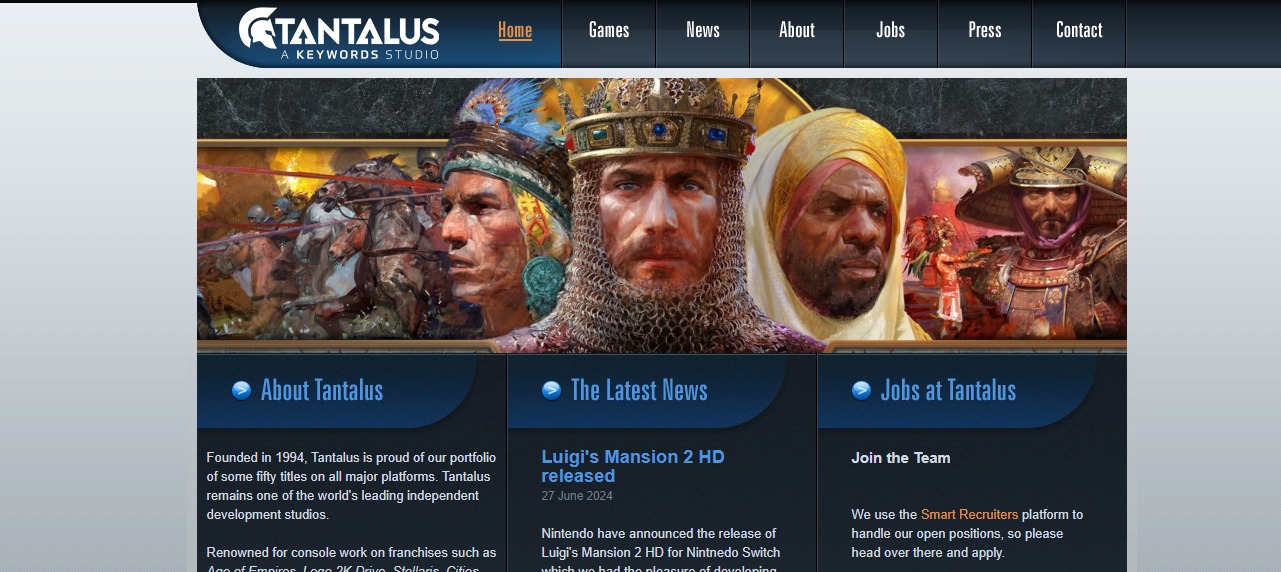
Founded in 1994, Tantalus Media has a rich history of developing games for console and PC. They have worked on popular franchises such as “The Legend of Zelda” and “Sonic Mania,” showcasing their versatility and expertise.
5. Wicked Witch Software:⤵️

Since its inception in 2001, Wicked Witch Software has been creating games for mobile, PC, and console platforms. Their portfolio includes a mix of original titles and collaborations with larger studios, demonstrating their adaptability in the industry.
6. League of Geeks:⤵️
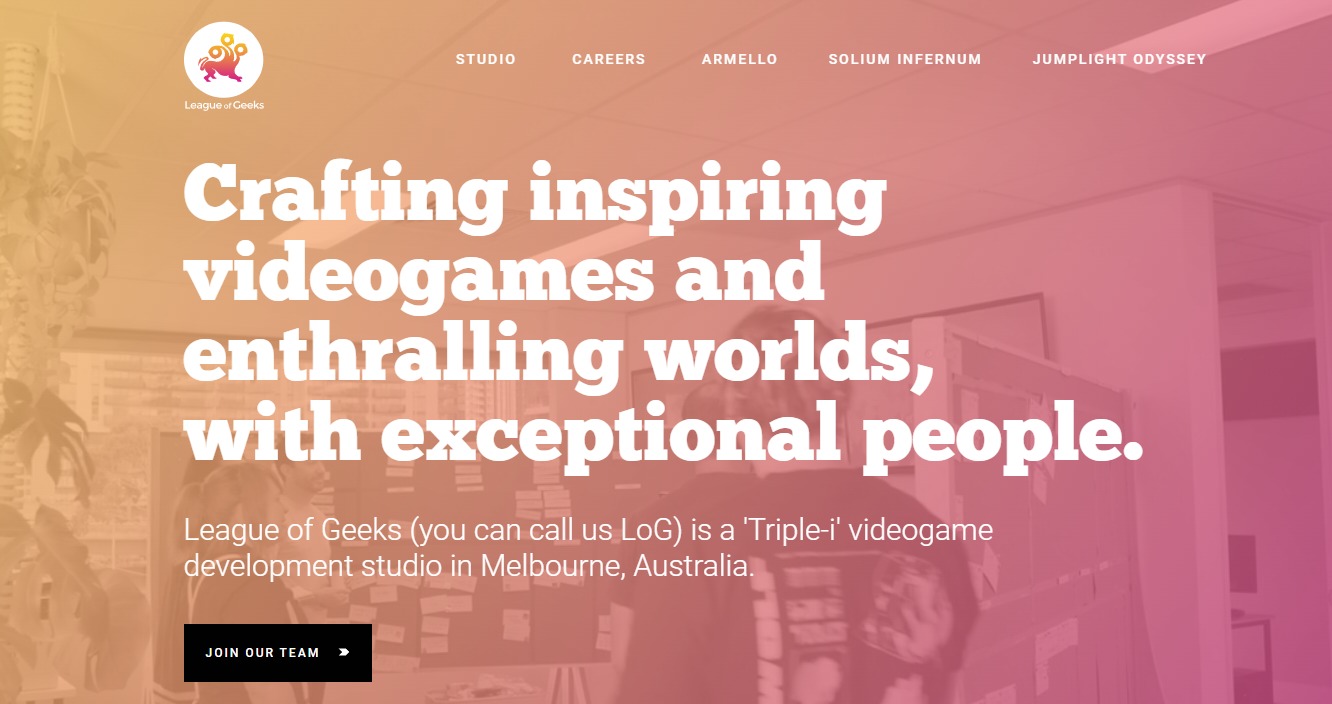
Founded in 2011, League of Geeks is an indie game development studio known for the critically acclaimed “Armello.” Their focus on strategy and innovative gameplay mechanics has earned them a dedicated following.
7. Firemonkeys Studios:⤵️

Established in 1999, Firemonkeys Studios is a prominent name in mobile and PC game development. They are best known for the “Real Racing” series, which has set new standards for mobile racing games.
8. Defiant Development:⤵️

Founded in 2010, Defiant Development is an indie studio that has developed popular titles such as “Hand of Fate.” Their focus on unique and engaging game concepts has made them a standout in the indie game development scene.
9. Mighty Kingdom:⤵️
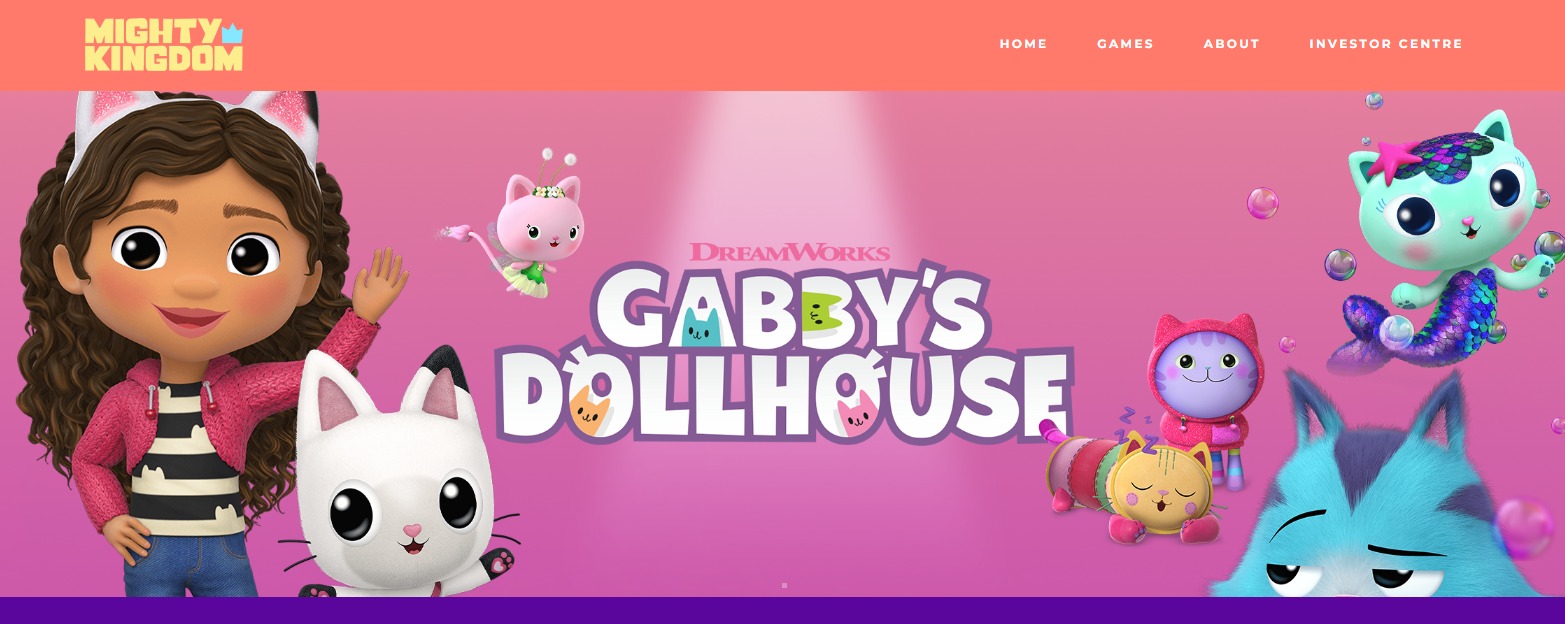
Established in 2010, Mighty Kingdom develops games for mobile, PC, and console platforms. They have a diverse portfolio that includes both original IPs and licensed titles, catering to a broad audience.
10. SMG Studio: ⤵️
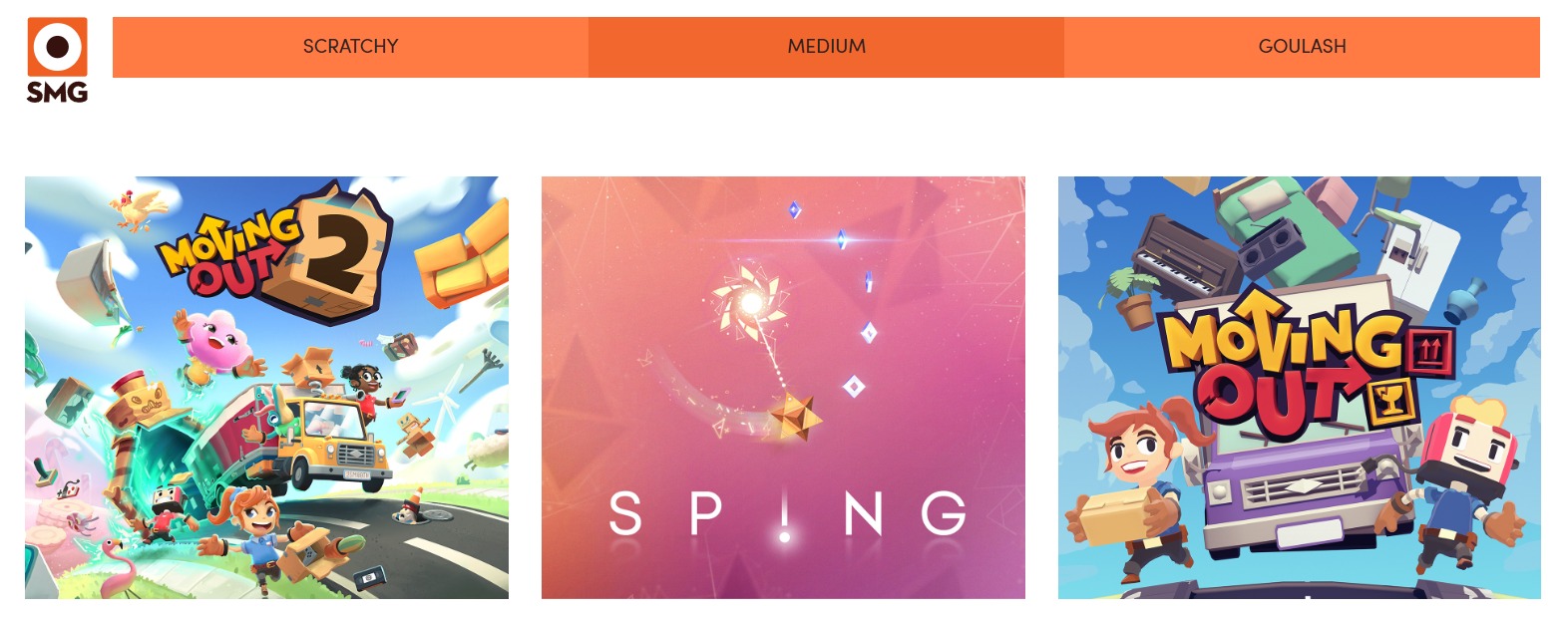
Founded in 2013, SMG Studio is known for their innovative and engaging games across mobile, PC, and console platforms. Titles like “Death Squared” and “Moving Out” have been well-received, showcasing their ability to create fun and challenging games.
What are the 7 Stages of Game Development?

1. Concept:
The concept stage is the genesis of any game development project. During this phase, the initial idea for the game is conceived. This involves brainstorming sessions where the core concept, target audience, game genre, and unique selling points are discussed and defined. This stage sets the foundation for the entire project and includes high-level ideas about gameplay mechanics, storylines, and visual style. Teams often create concept art and draft initial design documents to capture the essence of the game.
2. Pre-Production:
Pre-production is a critical planning phase where the game’s blueprint is created. This stage involves fleshing out the game’s storyline, designing characters, crafting levels, and defining the gameplay mechanics in detail. The development team creates detailed design documents, technical specifications, and a project timeline. This phase also includes resource planning, budgeting, and assembling the development team. Effective pre-production ensures a clear vision and roadmap, which helps prevent major issues during the subsequent stages.
3. Prototype:
In the prototype stage, a basic version of the game is developed to test core mechanics and gameplay ideas. This prototype, often called a “proof of concept,” helps identify potential problems early in the development process. It includes basic elements like rough graphics, simple controls, and initial gameplay loops. The goal is to validate the game concept and make necessary adjustments before full-scale production begins. Feedback from internal testing and early users can be invaluable in refining the game’s direction.
4. Production:
The production stage is where the bulk of game development occurs. During this phase, the game’s assets are created, including coding, level design, character models, animations, sound effects, and music. Artists, designers, programmers, and audio engineers collaborate to build the game according to the design documents. This stage is iterative, with continuous testing and revisions to ensure the game functions as intended. The production phase is often the longest and most resource-intensive stage of game development.
5. Testing:
Testing is a vital phase that ensures the game is polished and free of major issues before release. Quality assurance (QA) teams conduct rigorous testing to identify and fix bugs, glitches, and gameplay imbalances. This stage involves various types of testing, including functional testing, performance testing, and playtesting. Beta testing, where the game is released to a limited audience, is also common. Feedback from beta testers is used to make final adjustments and improvements.
6. Launch:
The launch stage involves preparing the game for public release. This includes finalizing the game build, conducting last-minute testing, and implementing marketing strategies to promote the game. Distribution channels are set up, whether through digital platforms like Steam and the App Store or physical retail. The launch is a critical moment that determines the initial reception and success of the game. Effective marketing and a smooth release process can significantly impact the game’s performance in the market.
7. Post-Launch:
Post-launch support is essential for maintaining and improving the game after its release. This stage involves addressing any issues that players encounter, providing updates and patches, and releasing additional content such as downloadable expansions or seasonal events. Continuous engagement with the player community helps retain interest and build a loyal fanbase. Post-launch efforts ensure the game remains relevant and enjoyable, extending its lifespan and profitability.
What Does a Game Development Company Do?
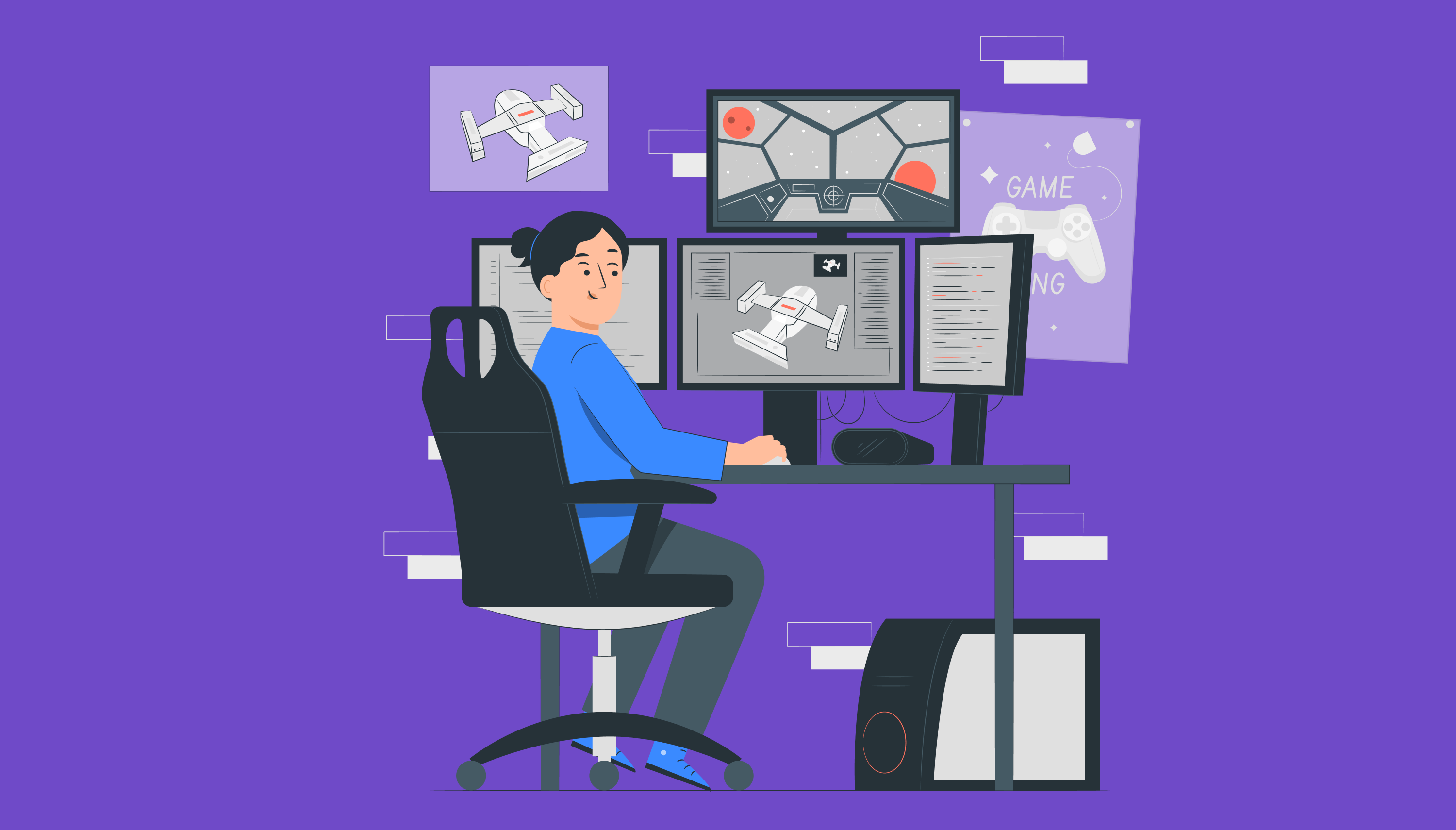
A game development company undertakes a comprehensive array of tasks to create video games from inception to release and beyond. Their responsibilities span multiple disciplines, requiring a collaborative effort from diverse teams of professionals. Here’s a detailed breakdown of what a game development company does:
1. Concept and Design:
The initial phase involves conceptualizing the game, which includes brainstorming ideas and defining the game’s core concept. This phase includes:
Game Concept: Developing the game’s story, theme, and unique selling points.
Game Design Document (GDD): Creating a detailed document that outlines the game’s mechanics, characters, levels, and other critical aspects.
Prototyping: Building early versions of the game to test core ideas and gameplay mechanics.
2. Programming:
Programming is the backbone of game development, translating the game design into a playable product. Key activities include:
Engine Selection: Choosing the appropriate game engine (e.g., Unity, Unreal Engine) that suits the game’s requirements.
Coding: Writing the code that dictates how the game operates, including gameplay mechanics, AI behavior, and user interface.
Optimization: Ensuring the game runs smoothly across different devices and platforms by optimizing performance and resolving technical issues.
3. Art and Animation:
Creating the visual elements of a game is crucial for delivering an engaging player experience. This involves:
Concept Art: Designing initial sketches and illustrations of characters, environments, and items.
3D Modeling and Texturing: Creating detailed 3D models and applying textures to make them look realistic or stylistically appropriate.
Animation: Bringing characters and objects to life through motion, ensuring smooth and natural movements.
4. Sound Design:
Sound design adds an essential layer of immersion and emotional impact to the game. Key components include:
Music Composition: Creating background music that enhances the game’s atmosphere.
Sound Effects: Designing audio effects for actions like footsteps, explosions, and ambient sounds.
Voice Acting: Recording dialogue and character voices to bring personalities to life.
5. Testing and Quality Assurance:
Rigorous testing ensures the game is free of bugs and provides a smooth player experience. This phase includes:
Alpha and Beta Testing: Early testing stages to identify major issues and gather feedback from a limited audience.
Bug Fixing: Detecting and resolving technical issues and glitches that affect gameplay.
Usability Testing: Assessing the game’s ease of use and overall player experience.
6. Marketing and Distribution:
Effective marketing and distribution strategies are essential to reach the target audience and achieve commercial success. This involves:
Marketing Campaigns: Developing promotional materials, trailers, and social media strategies to generate buzz.
Community Engagement: Building and maintaining a community of fans through forums, social media, and events.
Distribution: Releasing the game through various channels such as digital stores (Steam, PlayStation Store, App Store) and physical retail.
7. Post-Launch Support:
After the game’s release, ongoing support is crucial for maintaining player engagement and addressing issues. This includes:
Updates and Patches: Releasing updates to fix bugs, balance gameplay, and add new features.
Downloadable Content (DLC): Creating additional content to keep the game fresh and extend its lifespan.
Player Feedback: Continuously gathering and responding to player feedback to improve the game and address community concerns.
How Game Development Companies Make Sure Their Work Is High-Quality?

Ensuring high-quality and consistent work is paramount for game development companies aiming to succeed in a competitive market. To achieve this, companies can implement several key strategies and best practices:
1. Thorough Planning:
A detailed plan serves as the foundation for a successful game development project. This includes a clear definition of goals, timelines, and milestones, ensuring all team members understand their roles and responsibilities.
2. Agile Development:
Adopting agile methodologies allows for flexibility and iterative improvements. Agile development involves regular updates, feedback loops, and sprints, enabling teams to adapt to changes and refine the game continuously.
3. Quality Assurance:
Implementing rigorous QA processes throughout the development cycle is essential. This includes automated testing, manual testing, and beta testing phases to identify and address bugs, glitches, and performance issues.
4. User Feedback:
Gathering and incorporating feedback from players during beta testing phases is crucial. This real-world input helps developers understand how the game performs in diverse environments and how players interact with it, leading to more refined and enjoyable gameplay.
5. Experienced Team:
Employing skilled and experienced professionals in all aspects of game development is vital. A well-rounded team with expertise in programming, design, art, sound, and project management ensures high-quality outcomes.
6. Continuous Learning:
Staying updated with the latest industry trends, tools, and technologies is critical. Continuous learning enables developers to incorporate cutting-edge techniques and innovations into their projects, enhancing overall quality.
Top 10 Game Development Services in Australia

1. Full-Game Development
Full-game development involves taking a game concept through all stages of development, from initial idea to final release. This includes conceptualizing the game, designing the gameplay mechanics, creating art assets, coding, testing, and launching. Australian companies excel in providing end-to-end development services, ensuring a cohesive and polished final product.
2. Mobile Game Development
Specializing in games for mobile platforms like iOS and Android, Australian developers create engaging and optimized experiences for smartphones and tablets. They focus on intuitive controls, engaging gameplay, and seamless performance to captivate the mobile audience.
3. Console Game Development
Developing games for major consoles such as PlayStation, Xbox, and Nintendo, Australian game developers bring high-quality gaming experiences to these platforms. They work on complex projects that require rigorous testing and optimization to meet the standards of console gaming.
4. PC Game Development
PC game development is another area where Australian companies shine. They create games for various operating systems, including Windows, macOS, and Linux, offering high-performance and visually impressive games that cater to a wide range of gaming preferences.
5. AR/VR Game Development
Augmented Reality (AR) and Virtual Reality (VR) games are at the forefront of innovation, and Australian developers are adept at creating immersive experiences. They leverage the latest AR and VR technologies to build games that provide a unique and engaging experience for players.
6. Game Design and Prototyping
Game design and prototyping involve creating detailed blueprints and early versions of a game to test core concepts and mechanics. Australian companies excel in this phase, ensuring that the game’s design is solid before moving on to full-scale development.
7. Game Art and Animation
High-quality visual assets and animations are crucial for an engaging gaming experience. Australian game development companies offer top-notch art and animation services, creating everything from character designs to intricate environmental details that bring games to life.
8. Game Testing and QA
Quality assurance (QA) is a critical service that ensures games are free of bugs and deliver a smooth user experience. Australian companies provide comprehensive testing services, including functionality, performance, and compatibility testing, to ensure the game meets high standards.
10. Post-Launch Support and Updates
The work doesn’t stop after a game is launched. Australian game development companies provide ongoing support and updates, including bug fixes, new content, and enhancements. This ensures that the game remains engaging and relevant, maintaining player interest and satisfaction.
These top-tier services offered by Australian game development companies showcase their ability to deliver comprehensive and high-quality gaming experiences across various platforms and genres.
Top 5 Games Developed by Listed Game Development Companies in Australia
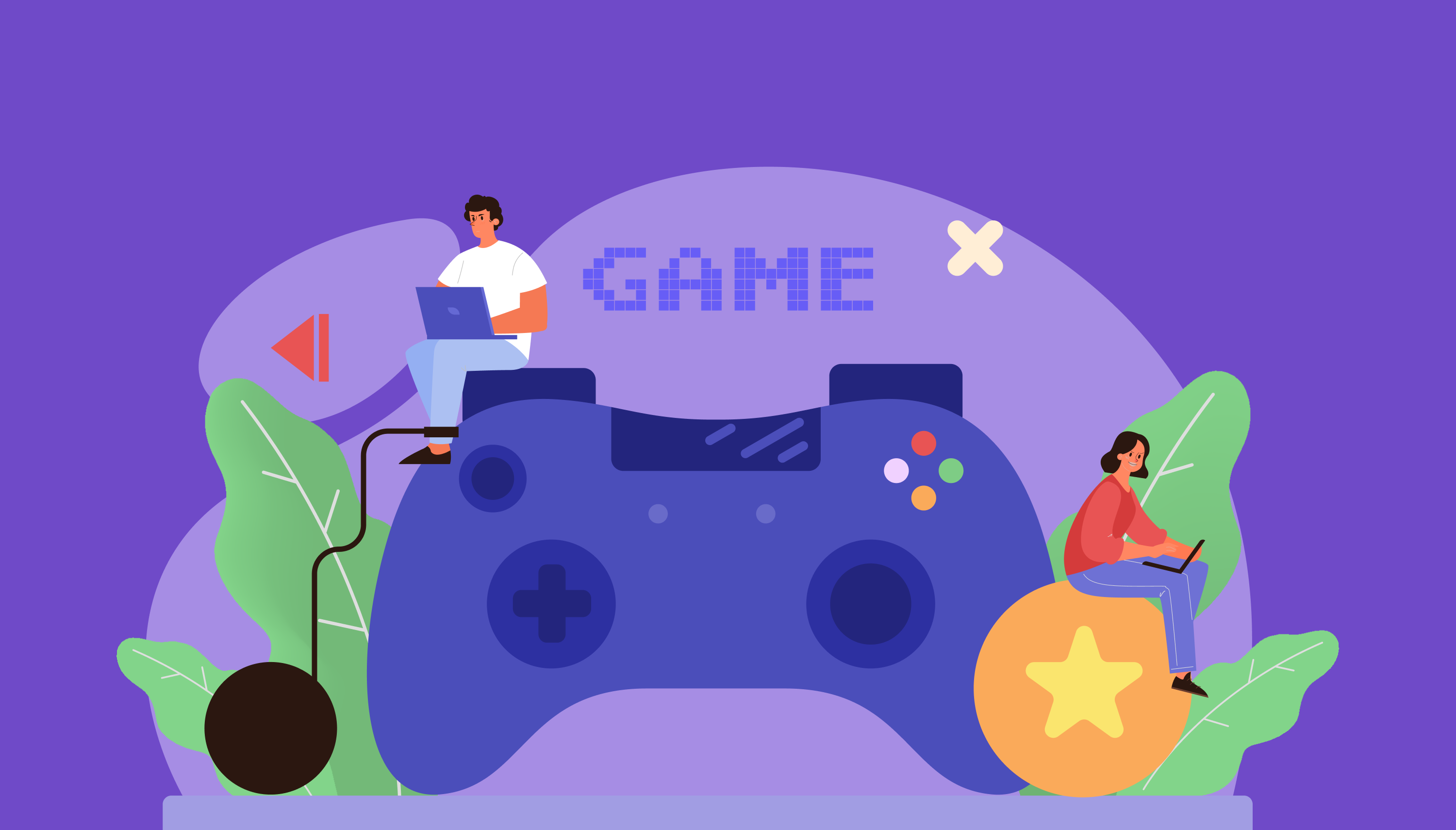
1. Ludo
Ludo is a classic board game brought to digital platforms with modern enhancements. This game features vibrant graphics and smooth gameplay, allowing players to enjoy the traditional experience of rolling dice and moving pieces while competing against friends or AI opponents. Various themes and customization options make it a popular choice for casual and competitive play.
2. Rummy
Rummy is a beloved card game that has been successfully adapted for digital play. With its easy-to-understand rules and strategic depth, the digital version offers features such as multiplayer options, various game modes, and tournament play. The game’s interface is designed for both casual and serious players, making it a favorite among card game enthusiasts.
3. Poker
Poker is a staple in the world of card games, and its digital versions have become extremely popular. These games offer realistic gameplay, detailed graphics, and a variety of poker variants, including Texas Hold’em and Omaha. Features like live multiplayer, customizable avatars, and competitive tournaments enhance the experience for players of all skill levels.
4. Fantasy Apps
Fantasy Apps offer immersive fantasy-themed experiences, ranging from fantasy sports to role-playing games. These apps allow users to create and manage fantasy sports teams, participate in virtual fantasy worlds, and engage in fantasy-based strategy games. With features such as detailed graphics, complex gameplay mechanics, and online multiplayer options, fantasy apps appeal to fans of various fantasy genres.
5. Multigame Platforms
Multigame platforms offer a collection of various games within a single app or interface. These platforms typically include a range of games, such as strategy titles, casual games, and classic board games. The convenience of accessing multiple games in one place, along with regular updates and new content, makes these platforms appealing to a wide audience.
Cost To Develop These Games in Australia

The cost of developing a game in Australia varies widely depending on the complexity of the game, the size of the development team, and the level of polish required. Here’s a rough estimate of the costs for developing the mentioned games:
1. Ludo: Developing a Ludo game can cost between AUD 15,000 to AUD 30,000, depending on the features and platforms.
2. Rummy: A Rummy game might cost around AUD 20,000 to AUD 40,000, considering multiplayer functionality and high-quality graphics.
3. Poker: Developing a Poker game can range from AUD 25,000 to AUD 50,000, given the need for advanced features and secure online play.
4. Carrom: A digital Carrom game could cost between AUD 15,000 to AUD 30,000, depending on the level of detail and multiplayer support.
5. Multigame Development: Creating a multigame platform can be more expensive, ranging from AUD 50,000 to AUD 100,000 due to the complexity and variety of games included.
What Benefits by Developing Your Own Game?

Developing your own game can offer a wide array of advantages that extend beyond the creative fulfillment of bringing a vision to life. Here’s a deeper look into the benefits of undertaking game development:
1. Creative Freedom: Developing your own game allows you to fully realize your creative vision. You can design unique characters, storylines, and gameplay mechanics without constraints imposed by external stakeholders. This creative freedom enables you to explore innovative ideas and push the boundaries of conventional game design.
2. Ownership and Control: When you develop your own game, you retain full ownership and control over the project. This means you can make decisions about the game’s direction, updates, and monetization strategies. It also allows you to safeguard your intellectual property and ensure your vision is preserved.
3. Revenue Generation: Successfully developed games have the potential to generate significant revenue. This can come from various sources, including direct sales, in-app purchases, subscription models, and advertising. With the right marketing strategy, a well-developed game can achieve substantial financial success.
4. Brand Enhancement: Creating a popular game can significantly enhance your personal or company brand. It provides a platform to showcase your creativity and technical skills, which can attract attention from potential clients, investors, and partners. A successful game can position you as a leader in the industry and open doors to new opportunities.
5. Long-Term Engagement: Games have the potential to engage users over long periods, fostering a loyal user base. This ongoing engagement can create a lasting relationship with players, encouraging them to return to your games and explore future releases. It also helps in building a community around your game, which can provide valuable feedback and support.
6. Skill Development: The game development process involves a wide range of skills, from coding and design to project management and marketing. Developing your own game provides a hands-on learning experience that can enhance your technical abilities and broaden your knowledge in these areas. This skill development is invaluable for future projects and career growth.
7. Market Differentiation: By creating a unique and innovative game, you can differentiate yourself from competitors in the crowded gaming market. This uniqueness can attract attention and set your game apart, making it more likely to stand out and succeed.
8. Personal Satisfaction: Bringing a game from concept to completion provides a deep sense of accomplishment. Seeing players enjoy and engage with your creation can be incredibly rewarding and fulfilling, both personally and professionally.
9. Opportunity for Innovation: Developing your own game allows you to experiment with new technologies and game mechanics. This opportunity for innovation can lead to groundbreaking ideas and contribute to the advancement of the gaming industry.
10. Building a Portfolio: A successful game can serve as a powerful addition to your portfolio, demonstrating your capabilities and achievements. This can be particularly beneficial if you’re seeking employment, freelance work, or funding for future projects.
Conclusion
The game development industry in Australia is vibrant and thriving, with a wide range of talented companies producing high-quality games for various platforms. From the initial concept to post-launch support, these companies offer comprehensive services that ensure the creation of engaging and successful games. Understanding the stages of game development, the role of a development company, and the cost implications can help aspiring developers and businesses make informed decisions. By leveraging the expertise of Australian game development companies, you can bring your creative vision to life and enjoy the numerous benefits of developing your own game.
Checkout our latest Instagram Post on Process Behind Game Development
FAQs
1. What drives the growth of the game development industry in Australia?
Growth is driven by the increasing demand for mobile and indie games, supportive government incentives, and a vibrant community of talented developers. These factors create a thriving ecosystem for innovation.
2. How long does it usually take to develop a game?
Simple mobile games can take 3 to 6 months to develop. More complex console or PC games may require 1 to 3 years, depending on features, team size, and budget constraints.
3. What skills are important for a game development career?
Essential skills include programming in languages like C++ or C#, game design principles, and proficiency with development engines such as Unity or Unreal Engine. Knowledge in art, animation, and sound design is also crucial.
4. Which platforms are popular for game development in Australia?
Popular platforms include mobile (iOS and Android), PC, and consoles (PlayStation, Xbox, Nintendo Switch). There is also growing interest in VR and AR platforms, offering new and immersive gaming experiences.
5. How can I get started with game development?
Begin by learning the basics of game design and programming through online courses or tutorials. Start with small projects, develop a game concept and prototype, and gather feedback from industry peers and potential players.
Appinop Technologies
We are a closely knitted bunch of thinkers, designers, developers and investors who are committed to transform the user experience by inventing and reinventing techniques that return high user engagement and increase share ability. Be it Android or iOS Mobile App or an Ecommerce portal, we strive to deliver only the best even if it takes repeated revisions.





